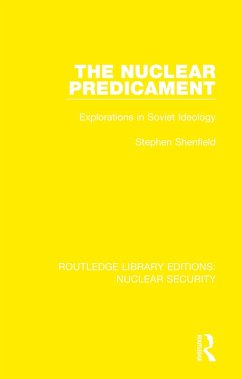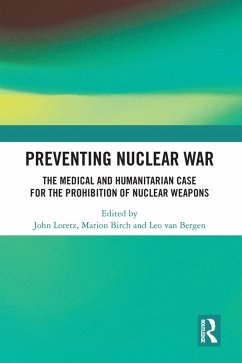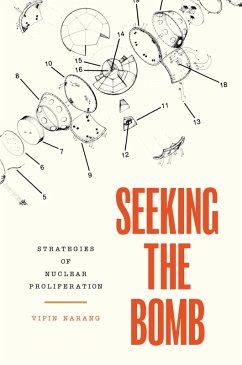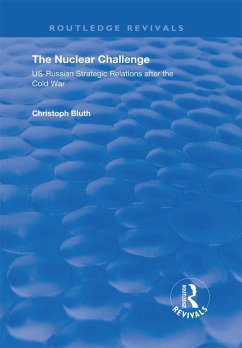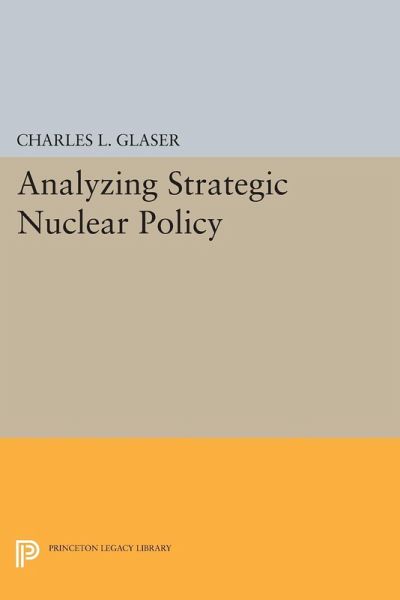
Analyzing Strategic Nuclear Policy (eBook, PDF)

PAYBACK Punkte
23 °P sammeln!
With sweeping changes in the Soviet Union and East Europe having shaken core assumptions of U.S. defense policy, it is time to reassess basic questions of American nuclear strategy and force requirements. In a comprehensive analysis of these issues, Charles Glaser argues that even before the recent easing of tension with the Soviet Union, the United States should have revised its nuclear strategy, rejecting deterrent threats that require the ability to destroy Soviet nuclear forces and forgoing entirely efforts to limit damage if all-out nuclear war occurs. Changes in the Soviet Union, suggest...
With sweeping changes in the Soviet Union and East Europe having shaken core assumptions of U.S. defense policy, it is time to reassess basic questions of American nuclear strategy and force requirements. In a comprehensive analysis of these issues, Charles Glaser argues that even before the recent easing of tension with the Soviet Union, the United States should have revised its nuclear strategy, rejecting deterrent threats that require the ability to destroy Soviet nuclear forces and forgoing entirely efforts to limit damage if all-out nuclear war occurs. Changes in the Soviet Union, suggests Glaser, may be best viewed as creating an opportunity to make revisions that are more than twenty years overdue. Glaser's provocative work is organized in three parts. "The Questions behind the Questions" evaluates the basic factual and theoretical disputes that underlie disagreements about U.S. nuclear weapons policy. "Alternative Nuclear Worlds" compares "mutual assured destruction capabilities" (MAD)--a world in which both superpowers' societies are highly vulnerable to nuclear retaliation--to the basic alternatives: mutual perfect defenses, U.S. superiority, and nuclear disarmament. Would any basic alternatives be preferable to MAD? Drawing on the earlier sections of the book, "Decisions in MAD" addresses key choices facing American decision makers.
Originally published in 1990.
The Princeton Legacy Library uses the latest print-on-demand technology to again make available previously out-of-print books from the distinguished backlist of Princeton University Press. These editions preserve the original texts of these important books while presenting them in durable paperback and hardcover editions. The goal of the Princeton Legacy Library is to vastly increase access to the rich scholarly heritage found in the thousands of books published by Princeton University Press since its founding in 1905.
Originally published in 1990.
The Princeton Legacy Library uses the latest print-on-demand technology to again make available previously out-of-print books from the distinguished backlist of Princeton University Press. These editions preserve the original texts of these important books while presenting them in durable paperback and hardcover editions. The goal of the Princeton Legacy Library is to vastly increase access to the rich scholarly heritage found in the thousands of books published by Princeton University Press since its founding in 1905.
Dieser Download kann aus rechtlichen Gründen nur mit Rechnungsadresse in A, D ausgeliefert werden.








